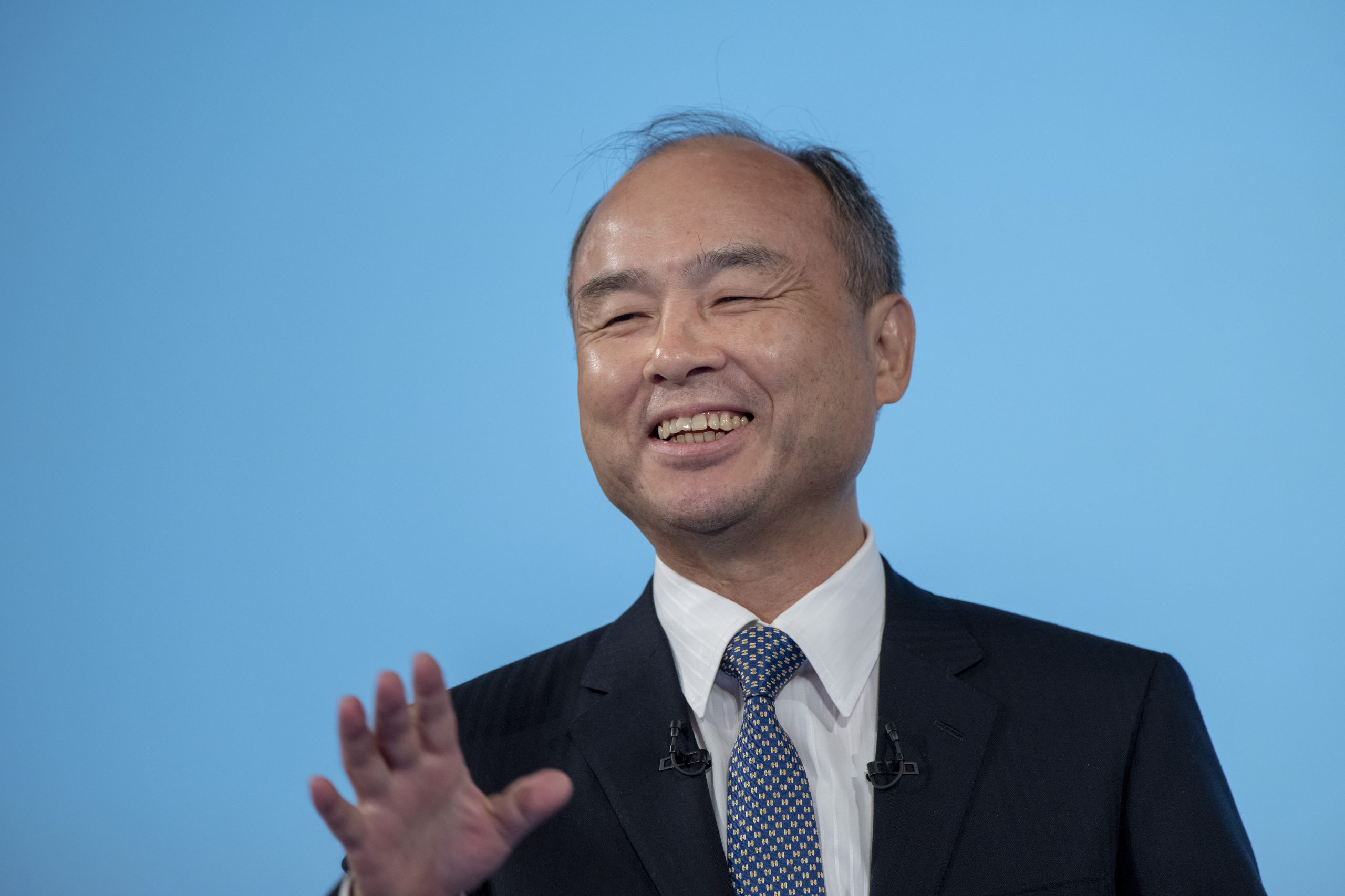
Masayoshi Son, the visionary founder of SoftBank, has once again captivated the global financial landscape with a decision that underscores his reputation for audacious, high-stakes maneuvers. The Japanese conglomerate recently divested its entire $5.8 billion stake in NVIDIA, a move that reverberated through technology markets and signaled an unequivocal commitment to artificial intelligence (AI) as the cornerstone of its future strategy. This bold pivot, while surprising many, is quintessentially Son, a titan of industry whose career is defined by grand bets and dramatic turnarounds.
A Legacy Forged in Audacious Bets
Masayoshi Son’s investment philosophy has consistently defied conventional wisdom, often characterized by a willingness to "push all chips to the center of the table." His journey from a young entrepreneur to a global investment magnate is punctuated by moments of immense triumph and significant challenge, each reinforcing his image as a risk-taker par excellence. Understanding this latest move requires a look back at the trajectory of SoftBank and its charismatic leader.
The Dot-Com Zenith and Subsequent Plunge
The late 1990s witnessed the dramatic rise of the dot-com bubble, an era that saw internet-based companies achieve astronomical valuations. SoftBank, under Son’s aggressive leadership, was at the forefront of this digital revolution, investing heavily in burgeoning internet startups. By February 2000, Son’s personal net worth briefly touched an astonishing $78 billion, propelled by SoftBank’s soaring market capitalization, which peaked at approximately $180 billion. This period marked him, albeit fleetingly, as the wealthiest individual globally.
However, the euphoria proved short-lived. The subsequent implosion of the dot-com bubble later that year delivered a devastating blow. SoftBank’s market cap plummeted by a staggering 98% to just $2.5 billion, resulting in a personal loss of $70 billion for Son—at the time, the largest individual financial loss in history. This cataclysmic event would have crippled most enterprises, but for Son, it merely set the stage for a legendary comeback.
The Alibaba Masterstroke
Amidst the ashes of the dot-com bust, Son made what would become his most celebrated and transformative investment: a $20 million stake in the nascent Chinese e-commerce company Alibaba in 2000. The popular anecdote suggests this momentous decision was made after a mere six-minute meeting with Alibaba founder Jack Ma. This seemingly modest investment blossomed over two decades, eventually reaching an astounding value of $150 billion by 2020. The Alibaba success story not only rescued SoftBank from financial ruin but also catapulted Son into the pantheon of venture capital legends, providing the capital and credibility for his next ambitious ventures. This singular investment fundamentally altered the landscape of global venture capital, demonstrating the power of early-stage, conviction-based bets on transformative technologies and markets. It also showcased Son’s unparalleled foresight in identifying future giants in nascent industries.
The Vision Fund Era: Ambition Meets Turbulence
With the immense capital generated from the Alibaba stake, Masayoshi Son launched the first SoftBank Vision Fund in 2017. This initiative marked a dramatic shift in the scale of venture capital, establishing a fund of unprecedented size, initially targeting $100 billion. The Vision Fund aimed to make massive investments in late-stage technology companies globally, seeking to accelerate the "information revolution" through a concentrated portfolio of disruptive innovators.
Navigating Controversial Capital and Ethical Dilemmas
The sheer scale of the Vision Fund necessitated significant external capital. Son notably secured a $45 billion commitment from Saudi Arabia’s Public Investment Fund (PIF), a move that raised eyebrows long before such sovereign wealth fund partnerships became more common in Silicon Valley. The relationship, however, came under intense scrutiny following the murder of journalist Jamal Khashoggi in October 2018. While Son publicly condemned the killing as "horrific and deeply regrettable," he maintained that SoftBank could not "turn our backs on the Saudi people," choosing to uphold the firm’s commitment to managing the kingdom’s capital. This decision sparked considerable debate within the tech and investment communities, highlighting the complex ethical considerations inherent in global finance and the increasing pressure on corporations to align their financial strategies with broader social and political values. Despite the controversy, the Vision Fund actually intensified its deal-making activity in the period immediately following.
High-Profile Stumbles: Uber and WeWork
The Vision Fund’s aggressive investment strategy, often characterized by "blitzscaling" and valuations that stretched market norms, led to both spectacular successes and notable failures. A significant investment in ride-hailing giant Uber, for instance, generated considerable paper losses for years, reflecting the challenges of achieving profitability in the highly competitive gig economy.
However, the most prominent and costly misstep was SoftBank’s entanglement with WeWork. Despite objections from his own lieutenants, Son developed a profound belief in WeWork founder Adam Neumann’s vision, personally championing the co-working company. SoftBank poured billions into WeWork, assigning it a staggering $47 billion valuation in early 2019 after a series of earlier investments. The company’s ambitious initial public offering (IPO) plans, however, collapsed spectacularly following the publication of a famously problematic S-1 filing, which revealed significant governance issues, conflicts of interest, and an unsustainable business model. The ensuing fallout led to Neumann’s ouster and a drastic reevaluation of the company’s worth. WeWork never fully recovered its former luster, ultimately costing SoftBank approximately $11.5 billion in equity losses and an additional $2.2 billion in debt. Son reportedly later referred to the WeWork saga as "a stain on my life," underscoring the profound impact of this particular investment on his legacy. These events served as a sobering reminder of the perils of unchecked enthusiasm and the importance of rigorous due diligence, even for the most seasoned investors.
The NVIDIA Saga: A Strategic Exit
Despite these setbacks, Masayoshi Son has been orchestrating another resurgence for SoftBank. The recent complete divestment of its 32.1 million NVIDIA shares marks a pivotal moment in this latest turnaround narrative. The timing and scale of this exit are particularly noteworthy. SoftBank reportedly sold its position at an average of approximately $181.58 per share, just 14% below NVIDIA’s all-time high of $212.19, reflecting a shrewd execution that maximized returns on a massive holding.
It is crucial to note that this is SoftBank’s second complete exit from NVIDIA. The first, in 2019, involved selling a $4 billion stake for $3.6 billion, a decision that proved exceedingly costly as those shares would have been worth over $150 billion today. This historical context adds a layer of complexity to the current divestment, highlighting the inherent risks and timing challenges even for sophisticated investors in rapidly appreciating assets. The current exit, however, appears to be driven not by a lack of confidence in NVIDIA’s prospects but rather by a strategic reorientation of SoftBank’s capital.
Market Reaction and Analyst Perspectives
The disclosure of such a substantial divestment from a bellwether technology company like NVIDIA naturally sent ripples through the market. NVIDIA shares experienced a nearly 3% dip immediately following the news. However, market analysts were quick to interpret SoftBank’s move not as a bearish signal on NVIDIA’s future, but rather as a testament to SoftBank’s aggressive capital allocation strategy aimed at funding its burgeoning AI ambitions. Industry observers generally agree that SoftBank is not retreating from the tech sector but rather doubling down on a specific, high-conviction area. This perspective underscores the nuanced dynamics of institutional investing, where a sale might reflect an internal strategic shift rather than a judgment on the asset itself.
The AI Imperative: SoftBank’s Future Trajectory
The underlying motivation for SoftBank’s complete NVIDIA divestment is its declared intention to go "all-in" on artificial intelligence. This strategy involves substantial new commitments, including a reported $30 billion pledge to OpenAI, a leader in generative AI, and an aspiration to participate in a colossal $1 trillion AI manufacturing hub planned for Arizona. These initiatives signal a profound shift in SoftBank’s focus, moving from a broad-based tech investor to a highly concentrated player in the AI ecosystem.
Broader Market Context of AI
The current era is widely recognized as the dawn of an AI revolution, with generative AI, machine learning, and advanced analytics reshaping industries from healthcare to finance, manufacturing to entertainment. The demand for specialized AI hardware, like NVIDIA’s graphics processing units (GPUs), has surged, driving unprecedented growth for companies at the forefront of this technological wave. SoftBank’s pivot positions it to capitalize on this exponential growth, aiming to fund the foundational technologies and infrastructure that will power the next generation of AI innovation. This strategic focus aligns with a broader industry trend where major tech players are dedicating immense resources to developing and deploying AI capabilities.
Risks and Rewards of a Concentrated AI Play
SoftBank’s "all-in" AI strategy, while potentially offering immense rewards, also carries significant risks. A highly concentrated portfolio, particularly in an emerging and rapidly evolving field like AI, exposes the firm to greater volatility and the possibility of substantial losses if specific bets do not materialize as expected. The competitive landscape in AI is intense, with established tech giants and numerous well-funded startups vying for dominance. Furthermore, the ethical and regulatory frameworks surrounding AI are still nascent, posing potential unforeseen challenges.
However, the potential upsides are equally compelling. If SoftBank’s investments in foundational AI technologies, infrastructure, and promising AI companies yield results, the returns could be astronomical, reminiscent of the Alibaba success story. This strategy reflects Masayoshi Son’s unwavering conviction that AI represents the most transformative technological shift of our time, and that SoftBank must play a central role in shaping its future.
Conclusion
Masayoshi Son’s decision to divest SoftBank’s substantial NVIDIA stake to fuel an aggressive AI strategy is a quintessential manifestation of his investment philosophy: bold, visionary, and high-risk. From the dot-com boom and bust to the Alibaba phenomenon and the turbulent Vision Fund era, Son has consistently demonstrated a willingness to stake everything on his convictions about future technological paradigms. This latest move sends a clear message to the market: SoftBank is doubling down on AI, prepared to make unprecedented commitments to shape the industry’s future. While Wall Street may continue to ponder whether Son sees something others do not, his track record suggests that ambiguity is often a precursor to his next transformative play, leaving investors and industry observers alike to watch with bated breath as SoftBank embarks on its most focused and ambitious chapter yet.







